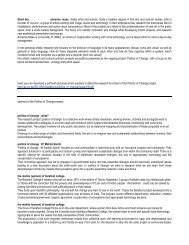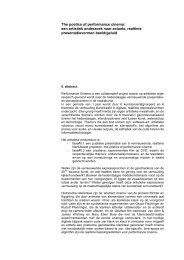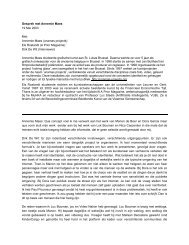MANIFESTO
MANIFESTO
MANIFESTO
You also want an ePaper? Increase the reach of your titles
YUMPU automatically turns print PDFs into web optimized ePapers that Google loves.
Section 6<br />
INDUSTRIAL AGROFUELS - A FALSE SOLUTION AND NEW THREAT TO<br />
FOOD SECURITY<br />
Food is the most basic of human needs and sustainable agriculture must<br />
be based on food first policies. Industrial agrofuels are non-sustainable and<br />
spread genetically modified organisms by stealth.<br />
Agrofuel plantations are aggravating the problem of climate change by<br />
destroying and replacing rain forests with soy, palm oil, and sugar cane<br />
plantations. This has led to an unparalleled land grab of indigenous and rural<br />
communities.<br />
Industrial agrofuels are responsible for perverse subsidies to non-sustainable<br />
agriculture which threaten the food rights of billions of people. To make<br />
matters worse, food prices are increasing due to the rapid conversion from<br />
growing food crops to growing agrofuels.<br />
Sustainable energy policies require decentralization combined with a general<br />
decrease in energy consumption, while maintaining food security as an<br />
overarching objective of food and agriculture systems.<br />
Agrofuels, also referred to as biofuels, are fuels derived from food crops such as<br />
corn, soya, canola and sugar cane, and oil bearing perennials such as jatropha<br />
and palm oil.<br />
Agrofuels are being promoted as the “green” alternative to fossil fuels and the<br />
panacea to climate change. However many scientific reports are now revealing<br />
that when the “cradle to grave” cycle - growing, producing, and burning the<br />
fuels - is considered, agrofuels are a net negative energy system. Research by<br />
professor David Pimental, Cornell University in New York, and professor Ted<br />
Patzek, University of California at Berkeley, reveal that it takes more than one<br />
gallon of fossil fuel (30 percent more) to make one gallon of ethanol, a cornbased<br />
fuel. Thus, ethanol and other agrofuels actually have higher emissions<br />
than fossil fuels.<br />
Yet, despite such evidence that agrofuels do not solve climate issues, many<br />
countries are investing billions and providing mass subsidies to growers and
















